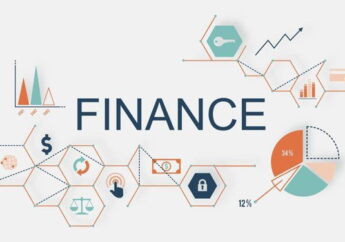What Happens In Recession? 5 Ways Recession Affects Your Life
by Shahnawaz Alam Finance Published on: 29 September 2023 Last Updated on: 06 December 2024

A recession is an economic situation that affects a country’s citizens’ lives. A significant issue caused by it is employee layoff, reduction in production, and low rate of consumer spending.
The countrywide economic situation can go a long way to affect people’s lives across different social communities. In this article, I have discussed what happens in a recession. You will also learn a few things about preparing yourself for recession.
What Is Recession?
Economists around the world have come up with varied shades of definitions for recession. But, in most cases, it outlines a constant decline in output for a specific period. A more concise definition would be that a declined output rate for two consecutive quarters suggests recession.
Recessions are also seen as the period between peak economic activity and its lowest points. However, this difference or the period of recession is relatively brief and does not last more than 10 months. The total GDP of a country drops during a recession, causing a dramatic shift in the price of essential commodities.
Some other effects of recession also include profitable industries becoming less valuable and consumers suffering from high inflation and unemployment rates. Read more to learn about what happens in a recession.
So, What Happens In Recession?
Recession can cause a chain reaction of financial unrest and decline across a nation. It starts with companies losing their sales and facing economic growth stalls.
This causes many organizations to try to cut rising costs, resulting in a huge number of layoffs. Widespread unemployment is one of the effects of recession. The unemployed also find it difficult to find another job in this situation.
The recession has a far-reaching effect, also harming people’s investments like stocks and real estate and also affecting their retirement funds. The money lending industry also takes a hit of recession. Money lenders raise their requirement areas, making it difficult for borrowers to qualify for a credit card or a loan.
Here is a better explanation of how recession affects the national economy –
1. Personal Income
Recession can cause serious damage to personal income. Due to the recession, income stagnates, or it drops exponentially for professionals across industries. The employers either cut hours or lay off employees to reduce costs. Unemployment usually affects the middle class and the lower middle class more than the wealthy. It makes income inequality clearer among social classes.
2. Unemployment
Recession can increase the unemployment rate to a level that is almost impossible to handle. It causes widespread layoffs, making thousands of people actively seek job opportunities without getting any solution.
3. Drop-In Production
Due to a low output, a recession causes companies to cut their production cost. More so, they also drop down on their production rate and reduce manufacturing activity. This can also affect the country’s economy through a decreased rate of exports due to an overall sluggish economic activity.
4. Consumer Spending
Recession also negatively affects retail sales by reducing the consumers’ capabilities of purchasing. Consumer spending is related to retail sales or the total amount consumers can spend on services and goods. During a recession, unemployed consumers do not have enough money to spend on their necessities as well. So, it normally reduces their consumer spending capabilities.
5. Increase In Cost of Living
When inflation contributes to a recession, it will cause the living cost to skyrocket. Essential commodities such as gasoline, clothes, and groceries become more expensive than they normally are. With a high rise in commodity prices, many unemployed citizens hardly manage to make ends meet. It causes strict budgets on both personal and family levels.
How To Prepare For Recession?
There is no way to avoid recession. It is an integral part of the economy. However, if you anticipate challenges beforehand, you can devise some preventive measures.
Here are some tips to help you –
Understand Your Financial Priorities
Recession is unpredictable. You do not know when it will stop or what happens after a recession affects the economy. But, to stay financially safe, you must first understand your financial position and priorities.
You can start by asking yourself a few questions –
- How much in hand cash do you have?
- How much cash can you access if you ever have an emergency need?
- How much of a current debt do you have?
- Do you have any debts right now? If yes, how much?
- What are the basic living expenses you need in a month? This includes your rent, food, child support, transportation, and health insurance.
- Is there any major life event possibly happening in the near future? It includes planning a baby, a wedding, or a retirement.
You must have an emergency fund so that you can defend yourself during such situations. This fund should be able to help you last for at least six months.
Debt Repayment
Debt repayment during a recession can be a huge, difficult area. Untimely debt payments can hurt your credit score. However, if you are going through a recession, that might be inevitable. However, you must identify and come up with ways to pay unavoidable debts.
The best course of action would be handling your credit score while also handling your debt repayment. You can ensure you pay some of the most necessary bills. Here are a few things to consider –
- Ensure that you are paying rent on your mortgage on time.
- Make your payment for the car if you need to get your car to work.
- Make sure you complete your minimum credit repayment.
- Also, keep up with your medical debts.
Consider Career Opportunities
Aside from these, you must also consider your career opportunities. Refresh your connections and build your industry network. It would be better if you thought of diversifying your career opportunities so that you have a stream of income at any given moment.
Boost Your Emergency Fund
Layoffs are pretty common nowadays. Most industries have examples of a wide number of employee layoffs from time to time. This is why keep your emergency fund boosted. This way, you will always have money to carry out your cost of living during employment.
Final Words
If you want to stay financially secure, then it is wise to stay prepared for situations like recession. Although it is impossible to state whether a recession is coming or not, it is good to stay prepared. If you have gone through this article, then you might already have some idea as to what recession is.
Please share your feedback on this topic. You can also share any questions you may have regarding the same.
Read Also:



































































































